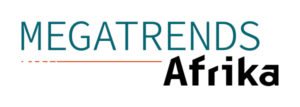Especially in African countries, a dynamic development of megatrends such as climate change and digitalisation is visible. The new project „Megatrends Africa“ by SWP, DIE and IfW Kiel supports political decision-makers with scientifically based advice.

The climate crisis, rapid urbanisation, the digital revolution, migration movements or geopolitical power shifts – megatrends like these preoccupy policy-makers in Africa and Europe alike and present them with new challenges. These profound transformations are changing politics, society and the economy of both continents. Especially in African countries, these transformations occur at a high pace. A development that is reflected in the high priority of Africa on the political agenda of Germany and Europe. The new Federal Government under Chancellor Olaf Scholz (SPD) has highlighted the importance of Africa-Europe relations and is striving to improve inter-ministerial cooperation in the coming legislative period. Such reform can be a far-reaching opportunity for German and European Africa policy.
These commitments also increase the need for scientifically sound policy advice. This is where the new research and advisory project „Megatrends Africa: Impacts and Options for Action for German and International Policy“ comes in. Starting in January, researchers from the German Institute for International and Security Affairs (SWP), the German Development Institute / Deutsches Institut für Entwicklungspolitik (DIE) and the Kiel Institute for the World Economy (IfW Kiel) will support policy-makers with evidence-based policy and decision-making tools. The focus of the cooperation project is on strategically relevant political and socio-economic developments in Africa as well as Africa’s international relations. The project aims to contribute to a differentiated public debate on Africa and to provide new impulses for cooperation between Africa and Europe.
German and European Africa policy in light of the megatrends
At the virtual kick-off event of the interdepartmentally funded project on 14 December 2021, representatives from politics and academia debated the significance of different megatrends for the partnership between Africa, Germany, and Europe. Megatrends were understood as an opportunity and a challenge for public institutions and structures. This applies especially to demographic change and the growing needs and demands of an ever-increasing African youth. It is the task of the state to offer viable solutions and a constructive way of dealing with the effects of these transformations and thus to secure the well-being of the population. If states fail to accompany these significant transformations, a feeling of social exclusion will prevail, which harbours a strong potential for conflict.
At the same time, the handling of the Corona pandemic has strained relations with African partners. Political trust has been lost. In search of strategic autonomy, Africa’s political decision-makers are diversifying their international partnerships. They wish to be seen as fully independent actors and are no longer solely bound to their European partners. German and European Africa policy must adapt to this. It is about creating a close dialogue, strengthening trust and considering African interests. This is the only way to establish a true partnership and find common solutions in response to the challenges related to the various megatrends.
An interdisciplinary research project
To support German government action, the research and advisory project begins its work in January 2022. Three research papers are planned on the role of megatrends in violent conflicts and statehood, their influence on democratisation and autocratisation, and their significance in the changing relations of African states with external actors such as China or Russia. The three institutes will pursue an interdisciplinary research agenda. They want to create a space for exchange and a far-reaching network of African and European academics. The directors of the three institutions agree, when wanting to strengthen the German research and advisory landscape in the long term and to increase the visibility of African research. Ultimately, the project is a first step towards the creation of an independent Africa Institute, according to political representatives from the federal ministries.

Schreibe einen Kommentar